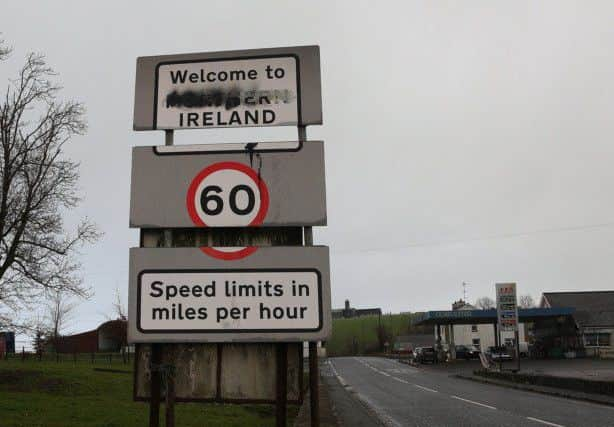Brexit: No-deal tariff plan revealed as cost of food set to rise
No new tariffs or checks on goods will be introduced on trade across the land border into Northern Ireland, in order to avoid a hard border, it has also been announced.
It follows the rejection by MPs of Theresa May’s Brexit deal for a second time on Tuesday night, setting up a vote this evening on whether to accept a no-deal Brexit.
Advertisement
Hide AdAdvertisement
Hide AdMinisters will seek to maintain existing protections for the lamb industry, by applying the full tariff rate to sheepmeat products entering the UK.


Other food products such as beef and poultry will face a reduced rate compared with the rest of the world, but prices would still be expected to rise for shoppers.
A 10.6% tariff on imported cars could raise the cost of the average family vehicle by £1,500.
Meanwhile, other industries will see the UK Government unilaterally apply a very low or zero tariff, potentially exposing them to crippling competition from foreign products.
Cheddar will be protected under existing tariff rates, but other cheese products will face no tariffs, and tariffs on steel and aluminium imports will be dropped. The tariff on imported textiles will also be slashed by 90%.
The Government has insisted it will not create a border down the Irish Sea, as there will be no checks on goods moving between Northern Ireland and Great Britain.
Instead, normal compliance and intelligence methods will be used to detect any traders attempting to abuse the system.
Ministers accepted that the new regime will cause “concerns” to Northern Irish businesses and farmers about the impact on their competitiveness.
Advertisement
Hide AdAdvertisement
Hide AdBut they said these were the only steps that could be taken to deliver on the Government’s commitment to avoiding a hard border in the case of no deal.
Under the new regime for Northern Ireland, goods arriving from the Republic will still be subject to the same VAT and excise duty as at present.
Small businesses trading across the border will be able to report VAT online without any new processes at the border.
To protect human, animal and plant health, animals and animal products from outside the EU would be required to enter Northern Ireland through a designated entry point, while regulated plant materials from outside the EU and high-risk plants from inside Europe will require certification and pre-notification.
There will be new UK import requirements such as document checks and registration for a small number of goods such as endangered species and hazardous chemicals which are subject to international agreements.
Northern Ireland Secretary Karen Bradley said: “The Government has been clear that a deal with the European Union is the best outcome for Northern Ireland.
“But we will do all we can to support people and businesses across Northern Ireland in the event that we leave without a deal.
“The measures announced today recognise the unique circumstances of Northern Ireland. These arrangements can only be temporary and short term.”
In the case of no-deal, the UK Government is committed to entering discussions urgently with Brussels and Dublin to agree long-term arrangements.
